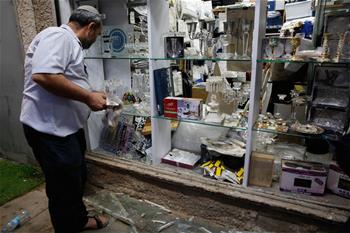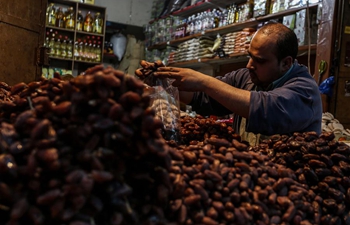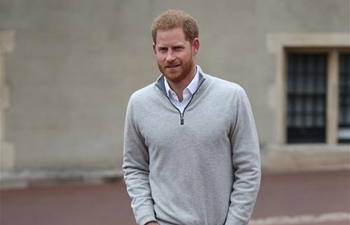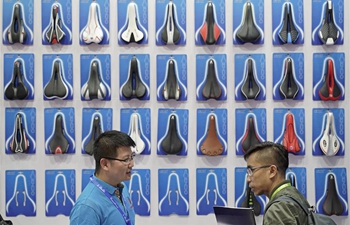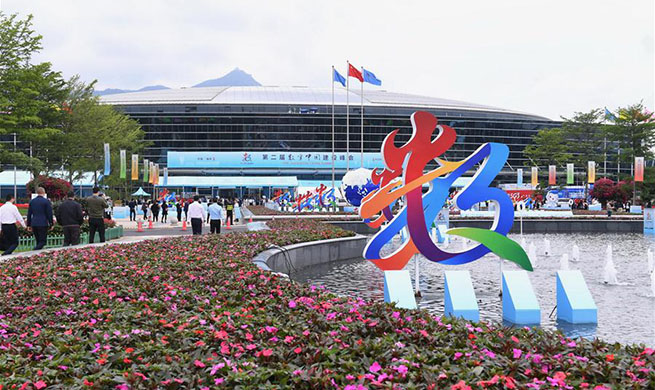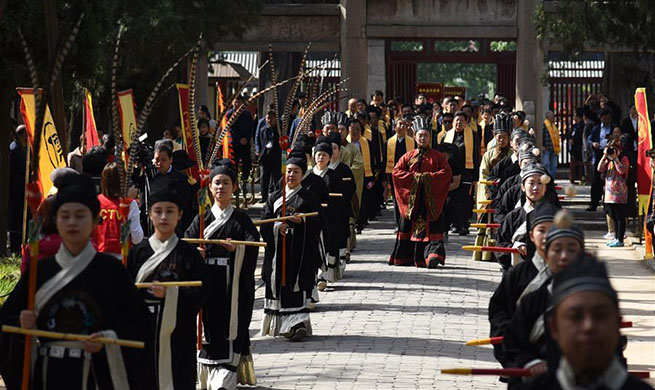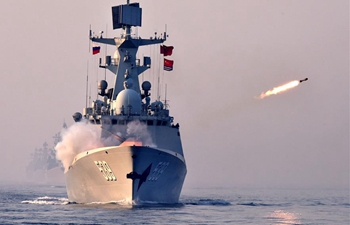HAVANA, May 6 (Xinhua) -- Spain will continue to invest in Cuba despite the uncertainty and concern raised by the recent activation of Title III of the Helms-Burton Act by the United States against the island nation, visiting Spanish Trade Minister Reys Maroto said here.
The minister reaffirmed the Spanish stance over the issue at a gathering of more than 130 representatives of Spanish companies in Cuba.
The controversial act, enacted four days ago by Washington, allows U.S. citizens to establish lawsuits against foreign companies operating in Cuba on nationalized properties after 1959.
"The meeting encourages us to continue working to strengthen trade and investment ties with Cuba. There are key investments Spanish companies can make in strategic areas for the modernization of the country such as renewable energies, transport, infrastructure and auto," she said.
In a press conference held after the meeting, Maroto also affirmed that Madrid's message to its investors in the Caribbean nation is based on "commitment," "responsibility" and "loyalty" to Havana and its business community.
"We are going to analyze all the recommendations from now on, both by our government and within the framework of the European Commission," she insisted.
Maroto said Spanish Prime Minister Pedro Sanchez will seek to mediate with the Trump administration to solve this issue and prevent "any kind of commercial war."
Implementing Title III of the 1996 Helms-Burton Act, which had been suspended by every U.S. president since Bill Clinton, aims to dash foreign investment in the island and further strengthen the nearly six-decade-old economic embargo, according to observers.
Also, it would unleash thousands of claims over major properties like factories, industries, tourism infrastructure, government buildings and even houses where ordinary Cubans live today.
"We will stand by our investments in Cuba and it could be years of litigation to make any decision," she said.
Among Spanish firms that could receive claims are Melia, Iberostar and Barcelo which operate more than 60 hotels owned by the Cuban government.
She highlighted the first Spanish investment fund of 40 million euros (about 45.6 million U.S. dollars) signed between the two countries last November during Sanchez's visit.
Maroto announced a second fund of 375 million euros (about 420 million dollars) to finance the island's local currency priority development projects linked to the interests of Spanish companies.
Spain is Cuba's third largest trading partner. According to official figures, Spain's exports to the island grew 5 percent in 2018 to around 900 million euros (about 1 billion dollars). Madrid is Havana's main European partner with a market share close to 40 percent.
This new investment fund announced Monday by Maroto is a fresh shot of vitality for Spanish businesses in Cuba, which is mired in tensions with Washington.
"Different sectors can contribute to Cuba's development with new investments, others can further develop ongoing projects and new companies have an enormous interest in this market," Inmaculada Riera, director of Spain's Chamber of Commerce, told Xinhua.
Spanish companies in such areas as tourism, agriculture and food processing, infrastructure, construction, energy were present at the meeting.
"This commitment goes beyond the Helms-Burton Act. The European Commission has a lot to say about this situation and Spain is leading a very strong and firm position of support for its companies," said Riera.
The decision by the Trump administration to fully implement Title III was met with wide opposition from the European Union and Canada, whose companies have invested billions of dollars in Cuba.
Brussels considers the move to be "contrary to international law" and said it would respond.
U.S.-Cuban relations have plummeted since Donald Trump took office, partially after he decided to roll back the detente initiated by his predecessor Barack Obama. The two sides still maintain their diplomatic ties re-established in July 2015 under Obama.
